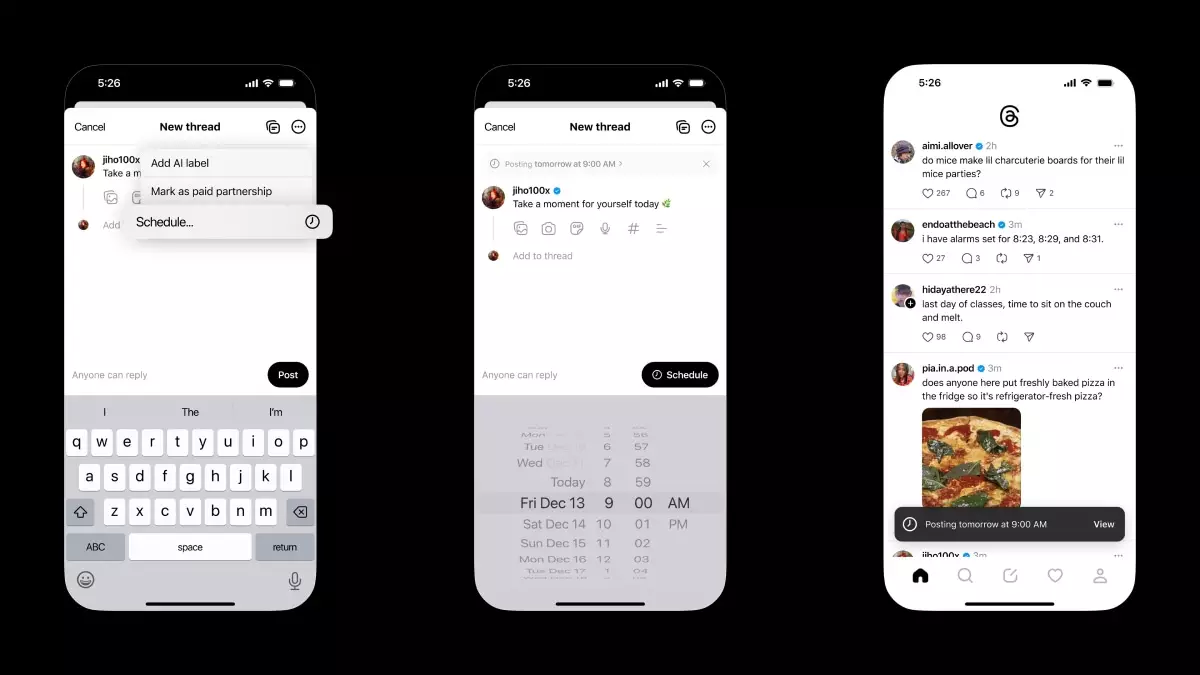Meta, the tech giant behind popular social media platforms like Threads and Instagram, is embarking on innovative changes by introducing scheduling features for its users. This evolution signifies a shift in how users plan and manage their social media content, enhancing engagement and user experience across its platforms. Although the specifics of implementation are still unfolding, these features may soon become integral for various users—be they influencers, businesses, or regular users looking to optimize their posting schedules.
Recently, Threads announced that it is currently testing a scheduling feature which allows users to organically plan and automate their posts. While the company has not publicly confirmed an official release date, the anticipation around this feature speaks volumes about the demand for more functional tools in the realm of microblogging. Users interested in this upcoming capability will be able to select their preferred publication date and time simply by using an intuitive three-dot menu in the post composer interface.
Scheduled posts will be systematically organized in a drafts folder, ensuring that users can efficiently track and manage their future content. Moreover, the flexibility to edit or delete these scheduled posts introduces an additional layer of control that can cater to the dynamic nature of social media where context can frequently change.
In parallel, Instagram has stealthily rolled out a scheduling option for direct messages, showcasing a keen awareness of user needs for better time management within its platform. Users can now craft text messages and choose when they want to send them—an exciting feature that can hugely benefit users trying to maintain engagement without the pressure of being online at all times. By long-pressing the send button, users will access a dialogue interface that allows them to schedule messages based on their discretion.
Importantly, Instagram has set certain limitations by allowing users to schedule text-only messages, excluding multimedia content like photos or videos. While this constraint may frustrate some, it nonetheless marks a significant step forward in how users can curate and plan their interactions within the app.
What’s Next? Implications for Users and Creators
The introduction of scheduling functionalities across Meta’s platforms signals a broader trend towards enhancing user autonomy and strategic engagement in social media. For content creators and brands, the ability to plan posts or messages means more time to focus on the quality of interactions at critical moments without the anxiety of immediacy. Being able to plan ahead can also facilitate a more balanced digital presence.
Moreover, as these features roll out more widely, they may redefine user behavior and expectations in the social media landscape. Users might find themselves more inclined to engage with platforms that empower them with such tools, creating a competitive landscape where other social media companies will have to follow suit to retain user interest.
Meta’s foray into scheduling features could ultimately revolutionize user engagement on Threads and Instagram alike. By prioritizing features that enhance user experience and offer new possibilities for interaction, Meta is positioning itself as a leader in social media innovation. Whether this will lead to a long-lasting shift in how users connect and engage online will depend on the eventual adoption of these tools, but for now, the potential is undoubtedly promising.


Leave a Reply
You must be logged in to post a comment.